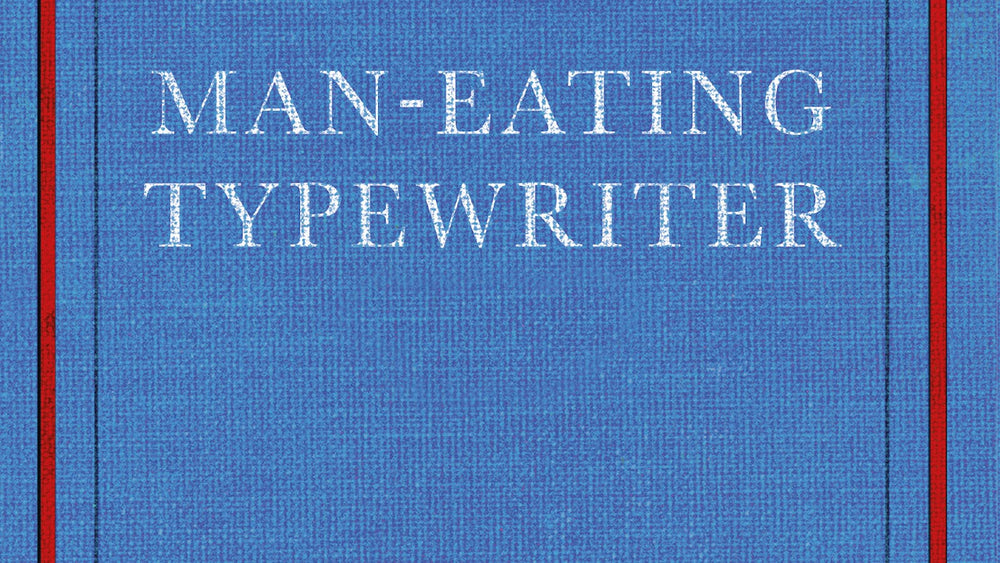My favourite literary guidance comes from Charles Baudelaire’s ‘Enivrez-vous’ (‘Be Intoxicated’, or just ‘Get Drunk’), one of the prose-poems in his 1869 Le Spleen de Paris: ‘You must always be intoxicated. On wine, poetry or virtue, as you wish. But you must get drunk.’ If you take ‘virtue’ to mean any sort of goodness or kindness, ‘poetry’ to mean any form of culture, and ‘wine’ to mean any chemical stimulant, it’s the perfect call to break yourself free from the drab straitjacket of reality and feel truly alive, fully stimulated. By some strange biological quirk, humans are able to get drunk and enjoy it – and so let’s do it, let’s ‘get drunk without truce’…
Growing up on Teesside, the flavour profile of alcoholic drinks always seemed far less important than their cost-effectiveness in just getting you mortalled as fast as possible. In my teens I was drinking rancid cut-price ciders with bolshy names (Three Hammers, White Strike, White Lightning, Spectra) as well as those sparkling perries we called ‘cheap wine’ or ‘shit wine’. Lads would avoid drinking Lambrini thanks to that ‘Lambrini girls just wanna have fun’ advert, but it was probably just the same fizzy headrot perfume squirted into those Lambrella and Bellabrusco bottles, the serif font and small watercolour of a Mediterranean idyll belying the fact you only ever saw it supped by scallies on recreation grounds and shopping parades.
These were the days of 69p nights at The Cornerhouse in Middlesbrough (every drink priced at 69p); the all-inclusive deal at Millennium, Teesside Park (I think it cost a tenner for a return coach and all your drinks free); and the skint anti-connoisseur mantra of ‘What’s your cheapest lager?’ They were times more closely associated with chucking up than savouring my drinks – and for years afterwards I would remain pretty ignorant as to what made a good beer good, and what didn’t.
Still, some special brews came my way accidentally. The Ayingerbräu lager at The Linny seemed all the more crisp and intoxicating having come out of a pump emblazoned with a schnurrbarted Bavarian in lederhosen – but the real pièce de résistance on Teesside was Tetley’s Imperial: a potent dark brown bitter brewed especially for the workers of the area to help fast-track them to inebriation between shifts. Nowadays it’s not as strong as it used to be, but its appeal holds strong in its sweet malty kick, and not least that it’s only really served in proper social club environments like The Ironopolis, The Westgarth, the Cricket Club. It’s Teesside pride in a glass: a powerful mystical force that, even at 4.3%, folks insist gets you ramped up faster than other ales with similar alcoholic volumes.
When I moved down to London (first in 2005 for art college, then again in 2016 for matters of the heart), the sheer abundance of choice meant my tastebuds started waking up to all sorts of new brews. There are certain establishments I’ll always associate with particularly pleasing bevs: the ripe, rustic bohemian Cidre Breton at The French House, Soho (a far cry from the synthetic cat-piss Spectra); the golden suckerpunch of Delirium Tremens at The Dove, Broadway Market; sugar-rush kids’-birthday-party stouts like City of Cake and Crunch at our old local House of Hammerton, Holloway; and juicy Gipsy Hill sours from The Douglas Fir, Crystal Palace were a revelation during marathon wanders under the lockdown sun.
The money-sucking vortex of London forced me into a few different bar jobs towards the end of the 2010s – some of which were an education, others just a proper chore. No bartender should have to do a shift completely sober. I’ve had jobs where the only drop of booze ever rewarded us was a single bottle of Peroni at 6am after a relentless ten-hour shift serving the hedonistic masses at Sink The Pink, and I’ve had bar jobs where you’re allowed to drink continually, with three free shots as standard during a shift, and any mispours considered yours for the taking.
Working at The Lexington, Pentonville Road was the ultimate education. Not only were there 100+ bourbons gleaming behind the bar, the fridges were a treasure trove of all-American beers. I’ve never been able to stomach IPA (the Kona Big Wave golden ale they had on tap is about as hoppy as I’ll go), but I’m partial to a witbier, like their creamy Blue Moon that comes with a brazen slice of orange dunked in. Probably my favourite from the Lexington fridge was the Anchor Steam Beer: a glug of heady caramel in an old-timey brown bottle, in stark contrast to all the tart hop-heavy numbers shrieking for attention behind the glass.
I hold those beers and the pub itself very dear. In the venue upstairs I discovered Ulrika Spacek, Jane Weaver, Kosmische Club and, while sometimes I did have to suffer repeats of Toto’s ‘Africa’ during the naff indie nights, frequently the DJs would give me a telepathic boost by way of Broadcast, Clothilde or The Normal’s ‘Warm Leatherette’. Everyone was massively overworked, and so the snatched slurps of beer were like medicinal nectar, like the energy gels marathon runners squirt into their gobs to keep going – and most nights we willingly extended the finishing line. It was by far the most frenetic work environment I’ve endured, but also the friendliest – testified by the fact we used to stay in there drinking until 7am most mornings with the managers, and last orders was 4am. All of us clinging to the last dregs of pleasure before the pain of returning home to force sleep in a sun-soaked bed – and then just doing it all over again.
Drink has been a big inspiration over the years (and possibly my favourite part of the writing process is roundabout draft four or five, getting drunk to ‘quality test’ the work with a slightly different brain to the one I wrote it with), but soon enough the heavy-glugging bar work started to have an adverse effect on my productivity. Creative folks seem drawn to the flexibility and frenzy of bar jobs (there were musicians and artists galore at The Lexington), but all too often these jobs can have a detrimental pickling effect, sucking you into suspended animation: the free-flowing booze becoming your nightly company bonus, your supportive colleague and your overbearing boss all in one. Temptation – and financial desperation – often draws me towards the wrong side of the bar again, but I don’t think I can ever go back.
Ultimately, my beer enlightenment is still a work in progress. For many years I feel like I’ve been blindly, blithely swimming around in the stuff – and I’m still essentially just a lager-swilling dullard, suspicious of anything that comes in an over-elaborately graphic-designed bottle or can. To this day I don’t know why I order a Kronenbourg whenever I’m in our beloved Scruffy’s in Middlesbrough – a habit of decades, but a lager I don’t choose anywhere else. Is it just reflex? Is it pure ignorance? The finest lager I’ve sampled must be the enormous steins of helles at Lake Constance, Bavaria – Fassbinder’s Martha territory – that taste so fresh you can fool yourself into thinking you’re having a spa treatment to your insides while also getting lashed. I want more of this goodness, but I don’t always know where to find it – or whether I can even afford it. If money were no object, I’d love to give myself a proper crash course in that mind-altering alchemy of grain, hops, yeast and water, and make some new liquid friends for life. Though many lads’ formative years were probably marred by the daft hyper-masculine assumption that certain drinks were wrong (and even the right drinks were wrong served in a half pint glass), I realise now there’s no shame at all in trying to become a connoisseur of everything and anything the world has to offer. Whether architecture or avant-garde cinema or flora and fauna or beer, it’s all there for the taking. Lap it all up – and see what sticks.
On wine, poetry or virtue, mild, porter or Special Brew, as you wish.
But you must get drunk.
Richard Milward is an Author and Artist. In March 2023, White Rabbit published Richard’s fourth novel, Man-Eating Typewriter, alongside reissues of his previous three books. The novel has already received accolades from the Telegraph (‘deserves to be boosted by a prize or two’), the Literary Review (‘a phenomenal achievement’) and the Guardian (‘a genuinely exhilarating entertainment’).

